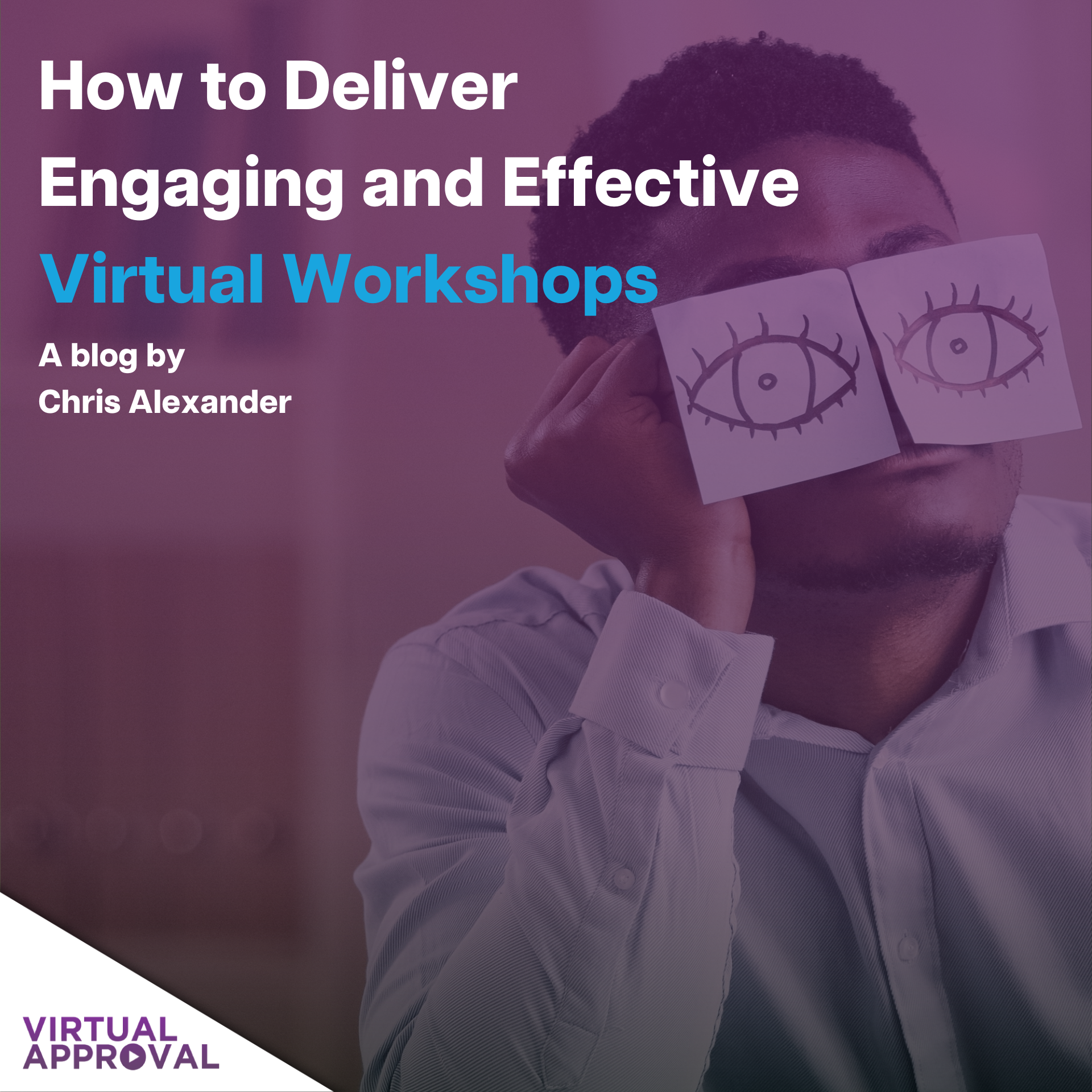30 May 2023
How to Deliver Engaging and Effective Virtual Workshops

During the 7 years I’ve been producing virtual workshops, there have been incredibly exciting developments in the online learning space and it’s fantastic to see that speakers, facilitators and delegates alike are embracing the convenience of the online classroom.
However, I have seen far too many dull sessions leaving audiences feeling drained, distracted, and dissatisfied.

To insure your attendees enjoy your workshops and take away valuable insights, it is essential to create an engaging experience. To help you with this, I am sharing some tips on how to prepare for and deliver virtual workshops that captivate your participants and drive meaningful results.
Preparing for Success in your Virtual Workshops
Here are a few crucial steps to take before your virtual workshop:
1. Define clear objectives: Start by outlining the goals and objectives of your workshop. What do you want your participants to learn or achieve? Setting clear objectives will help you structure your workshop content and activities accordingly.
2. Practice the delivery: Conduct a briefing meeting where everyone involved can align on the flow, practice delivering the content and test out the tech.
3. Define clear objectives: Start by outlining the goals and objectives of your workshop. What do you want your participants to learn or achieve? Setting clear objectives will help you structure your workshop content and activities accordingly.
4. Technical setup and testing: Prior to the workshop, ensure that your equipment and internet connection are reliable. Test your microphone, camera, and screen sharing capabilities. Conduct a practice run to familiarise yourself with the platform and address any technical glitches in advance.
5. Engaging materials: Develop visually appealing and engaging materials for your workshop. Incorporate relevant images and videos to enhance participant experience.
6. Interactive tools: To truly up-level your sessions, ensure that you keep up to date with the latest tools available to increase engagement. There are a plethora of tools available which can help you create activities such as games, quizzes, word clouds, brainstorming etc. Using tools like these keep attendees focused on the session and give them a feeling of participating rather than just being passive.
Delivering your Virtual Workshops
Once you have prepared the groundwork, it is time to focus on the delivery of your virtual workshop. Here are three interactive techniques to keep your participants engaged throughout:
- Polls and surveys: Integrate interactive polls and surveys into your workshop to encourage participant involvement. Ask thought-provoking questions related to the topic and allow participants to share their opinions. Display the results in real-time to generate discussions and insights.
- Breakout sessions: Breakout sessions are an effective way to foster collaboration and active learning. Divide participants into smaller groups and assign them specific tasks or case studies to work on. Encourage them to share their findings or solutions when they reconvene. This technique promotes engagement and enables participants to learn from one another.
- Q&A sessions and chat interactions: Dedicate time for Q&A sessions during your workshop. Encourage participants to ask questions via the chat feature or by unmuting themselves. Address their queries promptly and create an open dialogue. Additionally, use the chat feature to stimulate discussions, share useful resources, and encourage participants to interact with one another.

Follow-up
This is often overlooked but crucial for ensuring the workshop’s effectiveness. Consider the following steps:
- Collect feedback: Send out a post-workshop survey to gather feedback from participants. Ask them about their learning experience, the workshop’s effectiveness, and suggestions for improvement. Analyse the feedback received to enhance future workshops and tailor content to their needs.
- Share additional resources: Follow up with participants by providing supplementary resources related to the workshop topic. This could include articles, books, online courses, or relevant industry insights. Sharing valuable resources demonstrates your commitment to their ongoing development.
- Evaluation and improvement: Take time to evaluate the workshop’s success against the predefined objectives. Assess participant engagement, knowledge retention, and the overall impact of the workshop. Identify areas for improvement and refine your delivery techniques for future virtual workshops.
Feel free to use these tips as a checklist when creating your next virtual workshop. Be sure to experiment with different tools and techniques to find your what feels right for you and your audience. Remember that technology is constantly evolving and new ways to engage your audience are being created right now. It’s important to keep up with this to ensure you stay relevant.
There is a special relationship between producer and facilitator that can really make for compelling workshops when the 2 work in harmony so be sure to collaborate closely before and during your sessions.
Please let me know if anything in this article helped and if you’d like any further advice, feel free to reach out to [email protected]. or book a meeting with one of our team below! Good luck!
























